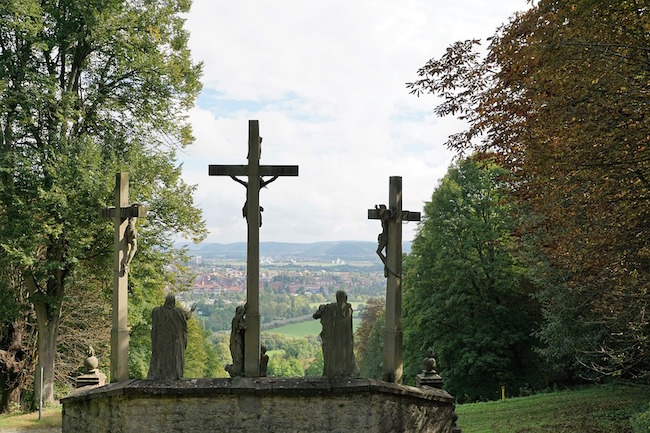When We Survey the Wondrous Cross by
Lent invites us to gain perspective by facing our mortality.
In 2013, Paul Kalanithi was completing his medical residency and was on his way to becoming a neurosurgeon at Stanford University when he was diagnosed with stage IV lung cancer. He’d just turned 36. Kalanithi began to write, and his memoir was eventually published as the book When Breath Becomes Air. In it, he recites words his oncologist and friend Emma Hayward shared with him as he reckoned with his impending death: “This is not the end. Or even the beginning of the end. This is just the end of the beginning.”
Kalanithi died in 2015. He was raised in a Christian home, eventually strayed from faith, but seems to have found God again during his final years. Hayward’s words ring resolutely true in light of the gospel. For followers of Jesus, death is not the end, or even the beginning of the end. It is simply the end of the beginning and the beginning of eternity.
While most Christians intellectually believe this to be true, our avoidance of death and even the talk of death seems to betray that belief. This is in part because, as anthropologist Anita Hannig observes, “In the United States the end of life has become so medicalized that death is often viewed as a failure, rather than as an expected stage of life.” We’ve been conditioned, in large part by our cultural fixation on pleasure, to ignore, deny, and even try to subvert death. As a result, we fail to ponder, deeply consider, and look upon it. We forget the psalmist’s reminder to “number our days” (Ps. 90:12), a call to reckon with our own limitations and the finitude of this life.
The journey toward Easter Sunday always begins with Ash Wednesday, when we remember that we are dust and will one day die. Before we arrive at the Resurrection, we must first reckon with the Cross. Isaac Watts’s “When I Survey the Wondrous Cross” calls us to this necessary work. Though we may think of the word survey in more technical terms these days, early on, the word actually meant something more along the lines of contemplate. Surveying the Cross isn’t a mechanical, morbid lurking in and out of nihilism. It’s an invitation to contemplate death and, according to the great hymn, to begin the journey toward clarity. Looking upon the Cross clarifies what truly matters now as we consider what is to come, for each and every one of us. And, what awaits us beyond.




